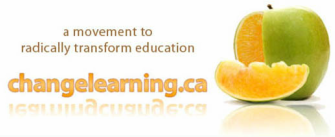|
This Policy Proposal, from the 21st Century Learning Initiative in the UK, is written to assist those in positions of influence to initiate powerful changes to current educational arrangements. The circumstantial evidence for such a transformation of learning is drawn from the best in research and practice from around the world. The paper shows that better informed, and more effective, models of learning could be organised through a redistribution of expenditures and responsibilities, at a total cost no greater than current levels of expenditure.
1 Comment
If young people are to be equipped effectively to meet the challenges of the 21st century it is surely prudent to seek out the very best understandings from current scientific research into the nature of how humans learn before considering further reform of the current system.
This article by John Abbott and Terence Ryan appeared in the Spring, 1999 issue of Education Canada. The annual Survey of Canadian Attitudes toward Learning (SCAL) provides a unique opportunity to gauge the opinions, perceptions, and beliefs of Canadians about various aspects of learning in Canada. Now in its second year, the survey was designed by the Canadian Council on Learning (CCL) in consultation with Statistics Canada, which administered the survey on behalf of CCL.
Link: http://www.ccl-cca.ca/CCL/Reports/SCAL/ Our society has undergone radical shifts in everything from family structure to demographics to where and how families and children spend the majority of their time. Canadian schools, first developed in the context of the family farm and small town, have struggled to respond to the massive shifts that have taken place in how children are living their lives outside of the classroom walls.
Read more Today’s students are the first generation to grow up in the midst of digital technology and these very different experiences have changed the way they think, behave and, quite possibly, the physical structure of their brain. These students require radically different methods to engage them in the learning process and maximize the potential of new technologies that surround them.
Read more “I believe that current formal education still prepares students primarily for the world of the past, rather than for possible worlds of the future….[we have] not yet figured out how to prepare youngsters so that they can survive and thrive in a world different from one ever known or even imagined before.” Howard Gardner
“Our ever-increasing global interconnection has changed the context of our existence, while globalization continues to change the face of our planet and the challenges that we, as a species, must face. Education must now respond to the need for new types of knowledge and very different skill sets. It must also provide learning experiences that foster the development of engaged and active global citizens if we ever hope to address the issues that threaten our future—global warming, international conflict and inequities in resource distribution around the world. Read more The work place is demanding more innovation and creativity…That’s a fundamental shift from just five years ago when the focus was on simply re-engineering and efficiency.” Terry Ryan
In the 21st century economy, preparing youth to work and succeed is far different than it used to be. Read more There’s no question that the world is a very different place than it was when public schooling became a common practice in North America. In fact, the rate of change itself has accelerated dramatically during this time frame.
Read more |
Categories
All
Archives
August 2015
|

 RSS Feed
RSS Feed
